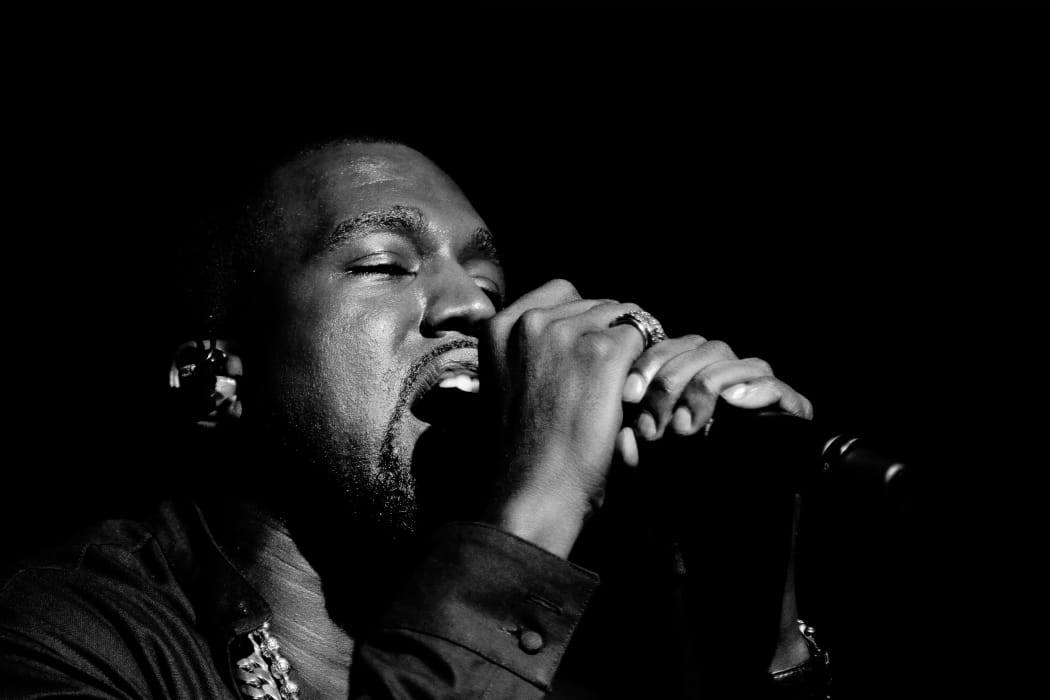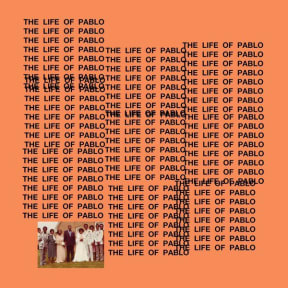
Kanye West Photo: CC BY 2.0 Kenny Sun
Nick Bollinger discusses the lavish launch and conflicted contents of Kanye West’s The Life Of Pablo.

If there has ever been an album launch like the one for The Life Of Pablo, Kanye West’s latest long-player, I must have slept through it.
Actually, to call it an album launch is perhaps misleading. After tantalising via Twitter with an ever-changing series of titles, lyrics, release dates, collaborators and track-listings, the rap star finally debuted his supposedly completed seventh album to the world mid-February via a laptop, from the stage of Madison Square Garden. It was part of an event that was also a fashion show for his latest sportswear collection, and a preview of his new video game (based on the idea of his late mother trying to get through the gates of heaven.) All this was witnessed not just by the audience at the Garden, but in real time on screens and in cinemas around the world, by an estimated 20 million people.
Since February 14, one has been able to listen to The Life Of Pablo, but only on Tidal, the music streaming service in which Kanye is reportedly a shareholder. There has been no sign yet of a physical record.
But if there’s a sense in which the music is only part of a complicated multi-media statement, for which Kanye West is marshalling all the resources available, the music itself has plenty to say.
This is the guy, after all, who called his last record Yeezus – a conflation of his nickname Yeezy and that of the Christian messiah – and included a track entitled ‘I Am A God’. There is plenty of self-inflation on this new album too, counterpoised by those by-now-familiar moments of self-doubt. (Just moments, mind you.) Still, there is no escaping the fact that musically, and in many ways conceptually, one of the pervasive themes of Pablo is gospel.
Hip-hop has traditionally been a secular music, closer in spirit to the blues than to the more metaphysical concerns of gospel. But, as Kanye tells us in the opening track – with his signature Auto-Tune cranked up - ‘this is a God dream’. And he’s got a choir what sounds like a church organ to back him up - though for the real testifying he hands over the mic to Chance The Rapper and the great Mary J Blige.
But if songs like these seem designed to inspire, others seem contrived to offend. ‘Famous’ caused an instant furore, just as Kanye no doubt hoped it would, with a lecherous line about Taylor Swift and the suggestion that her fame is due only to his famous upstaging of her at the MTV awards a few years back.
It’s a cheap shot and a silly one, as even Kanye would probably admit. Yet behind that much-recounted episode – which, in truth, did at least as much to spread Kanye’s fame as Taylor Swift’s – was a serious motivation that I think underlies much of what Kanye does. That, I think, is a real anger about the treatment of black people in America. Remember, the reason for Kanye’s stage invasion at the MTV awards wasn’t to do with Taylor Swift as such; it was about the fact that Swift’s video had won the award over Beyonce’s ‘Single Ladies’, a milestone in black pop and astounding piece of choreography. Surely in the back of his mind was the way Michael Jackson had to fight to have his similarly ground-breaking videos screened at all, simply because he was black and MTV’s ethos overwhelmingly white. And no matter how that may have changed or how wealthy and successful Kanye has become, he still knows the way the system is stacked.
What is disappointing, though, is how hit and miss he is with his targets. As these new songs show, he is just as likely to turn that sense of injustice against women, or convert it into pointless posturing as he does in the song ‘Highlights’.
The album went through a number of working titles before Kanye settled the typically self-aggrandising on The Life Of Pablo, inviting comparison with any number of Pablos, including Colombia drug lord Pablo Escobar and the great 20th century artist Pablo Picasso.
If Kanye’s empire might sometimes look a bit like a drug cartel, I imagine it’s the Picasso comparison he would ultimately favour. He has never hesitated to refer to himself as an artist, and all of his various enterprises - whether it be his albums or his fashion lines - part of his grand creative statement.
The Life Of Pablo has some inspired, even transcendent moments. Yet too often it is Kanye who reduces it, deflating the music’s majesty with his conflicts, neuroses, and petty vendettas. It’s almost as if there’s self-sabotage at work.
There’s a famous poem by the American poet William Carlos Williams which begins: “The pure products of America go crazy.” The writer Peter Guralnick quoted it once at the start of a famous essay he wrote about Elvis. But I wonder if it somehow applies at least as much to Kanye? Kanye is, in a way, a pure product of America. He has achieved fame, money, material wealth. He’s married to Kim Kardashian, the biggest reality television star in the business. He has all the supposed trappings of success. He’s attained the American Dream. And yet he remains angry, conflicted, unresolved. Is he proof that, perhaps, once you get there the only thing left is to go crazy?
Songs played: Wolves, Low Lights, Famous, Ultra Light Beam, Father Stretch My Hands, Highlights, Waves
The Life Of Pablo is currently only available on the music streaming service Tidal.

